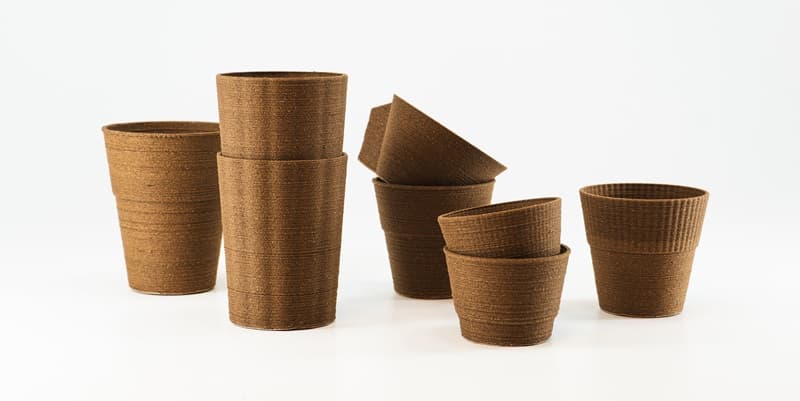Organic production by-products being transformed into environmentally friendly disposable crockery

Attēls: Snow Recycle
When sale of disposable plastic tableware was prohibited in Europe in 2021, entrepreneur Marija Korabovska together with a colleague realised that an alternative was needed that would be both eco-friendly and sustainable. That was the beginning of Snow Recycle which is developing a bio-degradable composite material: ogranules made from coffee grounds, grain waste, post-juicing apple residues and other natural materials.

Unlike such alternatives as paper and cardboard, the production of which promotes deforestation, this biomaterial makes use of already existing organic residues thus promoting the circular economy and more efficient use of resources. “We have a lot of organic residues in Latvia at juice production facilities and breweries, alcohol factories. We started analysing the scientific literature and found that these residues have useful properties,” Ms Korabovska explains the beginnings of the idea. “Crockery made from ogranules is heat-, cold- and moisture-resistant, it is suitable for repeated use, it is even dishwasher-safe and will break down completely in the environment within 90 days.”

To bring the idea to life, in 2022 the company applied for the innovation voucher programme established by the Investment and Development Agency of Latvia (LIAA) and started collaboration with the Institute of Polymer Materials of Riga Technical University (RTU). The funding obtained through the programme allowed the company to perform the studies necessary to create the material and adapt it for industrial manufacturing. “At RTU various organic residues were dried, cut and the best combination was sought to create a material that is appropriate for manufacturing food containers. We couldn’t have done it without the support of LIAA.”

Following the initial development of the product, the company went to Switzerland where the first 100 kg of organic granules were produced. Testing was also done in Japan, Thailand, and China where the Snow Recycle material was rated among the top 3 food grade biodegradable materials in the world.
But the company is not planning on stopping at the production of crockery, Ms Korabovska explains. “Our material can be used not only for crockery, but also furniture, design elements and even flowerpots that can be planted in the ground where they will decompose.” The next step for the company is to open its own factory in Latvia to produce granules and disposable crockery. The company has currently registered two patents in Latvia and has also obtained an international patent that opens the door to the global market.

Ms Korabovska believes that it is important for new entrepreneurs looking to develop innovations to take advantage of the available support mechanisms which help test the viability and technical possibilities of their ideas. “We have used the LIAA vouchers three times already; they helped develop prototypes, test them to demonstrate our product to potential partners, investors and customers. It is an excellent first step!”
This article has been produced with financial support from the European Regional Development Fund.
